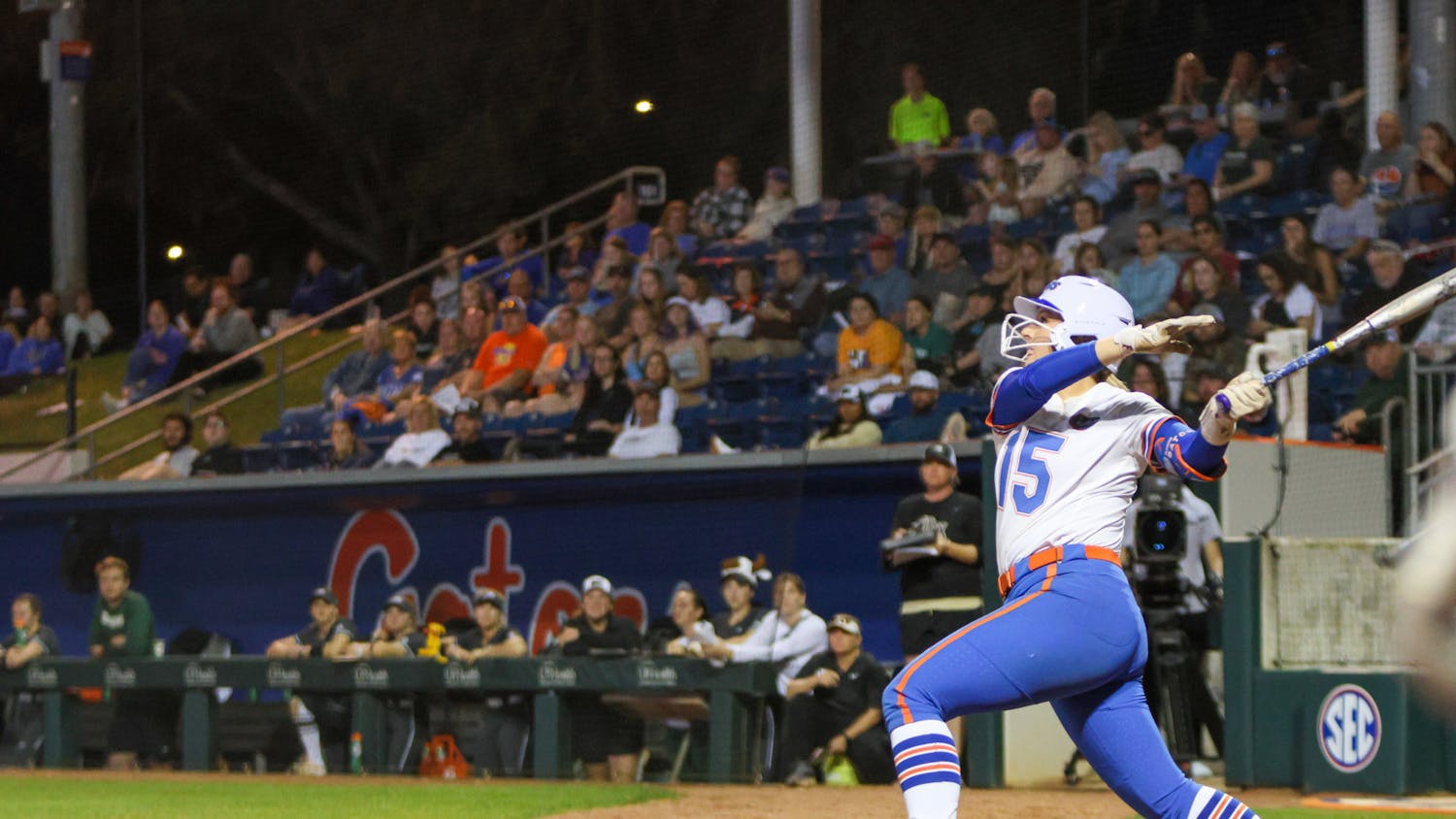Tobias Buckell discussed how he foresees a new ocean, made from the melted North Pole, to an audience of about 70 on Thursday.
Buckell spoke at UF’s first Imagining Climate Change Spring seminar, which was held Wednesday and Thursday. The symposium used academic and science-fiction writing to discuss global warming. The event concluded in the Smathers Library on Thursday night.
Eight guest speakers presented at the symposium; each talked about his or her perspective on fiction, science and the future of climate-related issues.
Buckell said works of science fiction are important because they engage an audience that would not typically read academic texts. Some find scientific studies too dry, he said, and novels can help educate people through storytelling.
“Climate change is one of the biggest problems we’re facing,” Buckell said. “And novels help us grapple with things that are larger than ourselves.”
Buckell said many try to label his novel “Arctic Rising” as a fictional dystopian novel. But he said the data behind the book shows the plot’s setting is realistic.
“The novel is about the future, and that future is happening right now,” Buckell said.
Madeline Gangnes, the logistics coordinator of Imagining Climate Change, said hearing from famous science-fiction writers could help global warming become relatable. She hopes people learn about climate change.
“It’s an issue that affects everybody,” Gangnes said. “If we can make it accessible, it will help us mitigate the inevitable.”
Carson Bell, a 20-year-old UF sustainability studies junior, attended the event. She said the issue of climate change is very important to her.
“If no one else is going to take care of the world, I want to dedicate my life to it,” Bell said.





